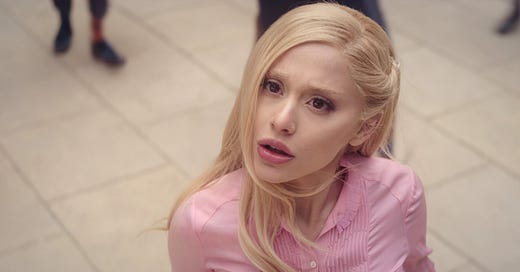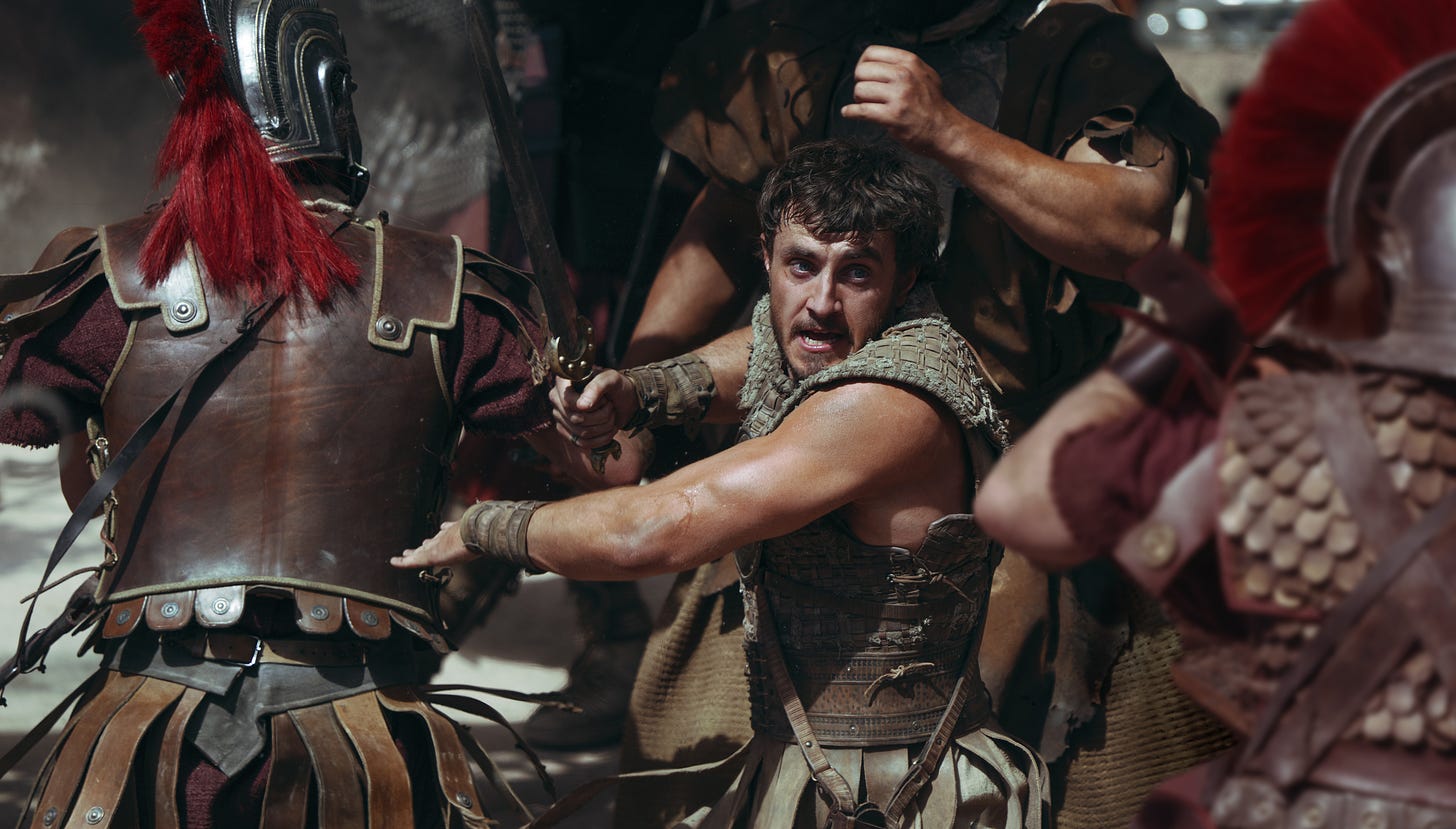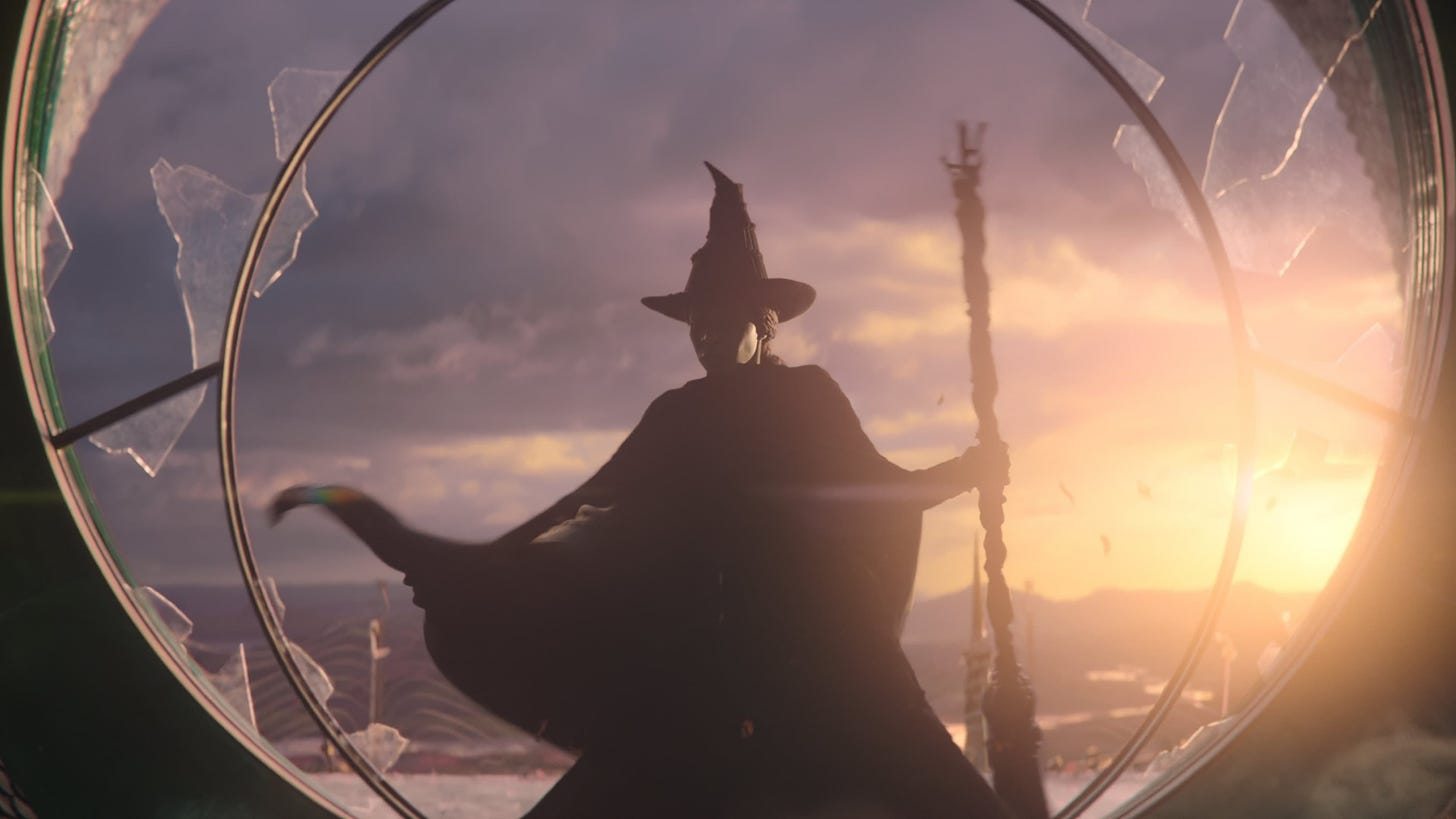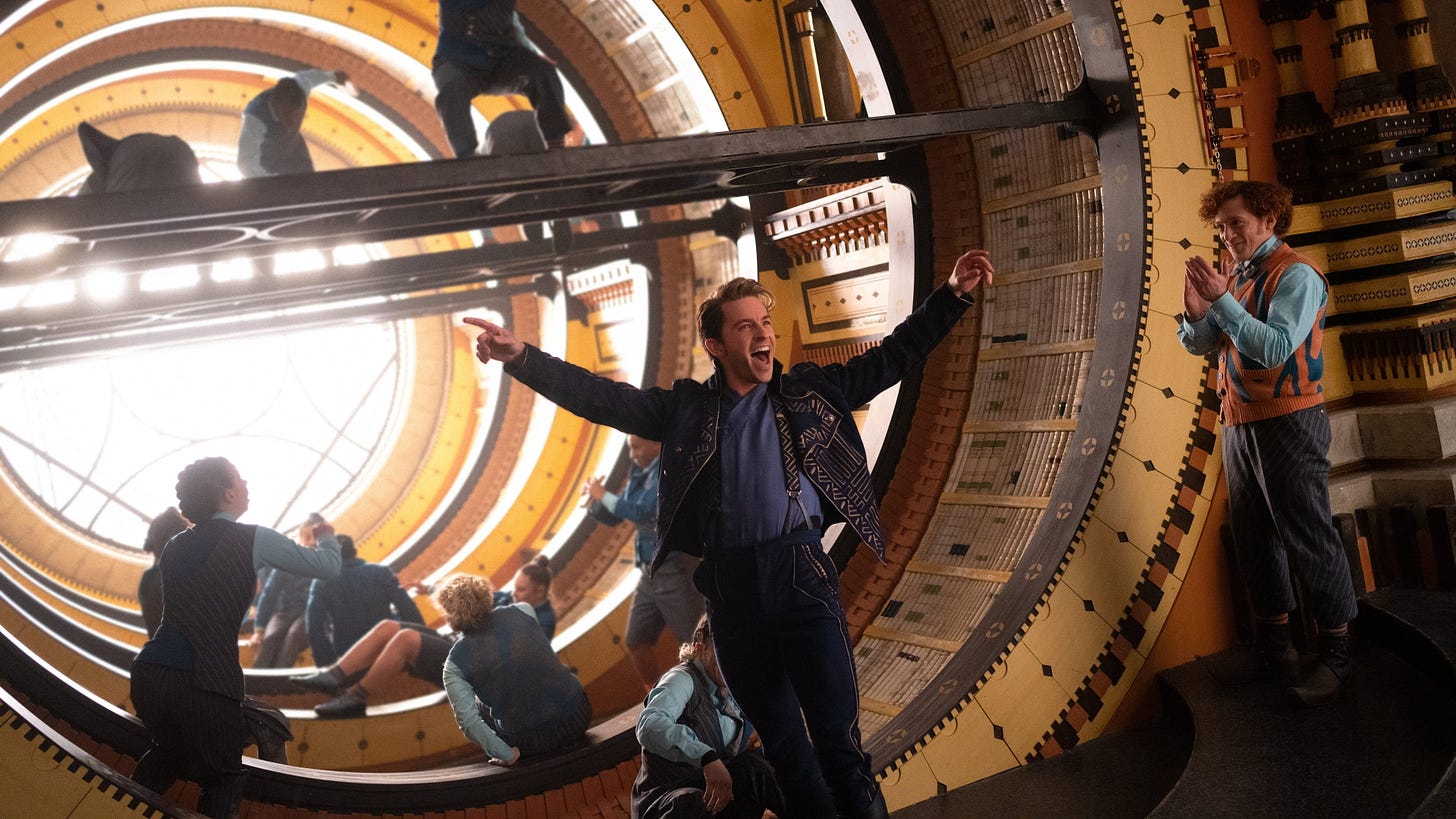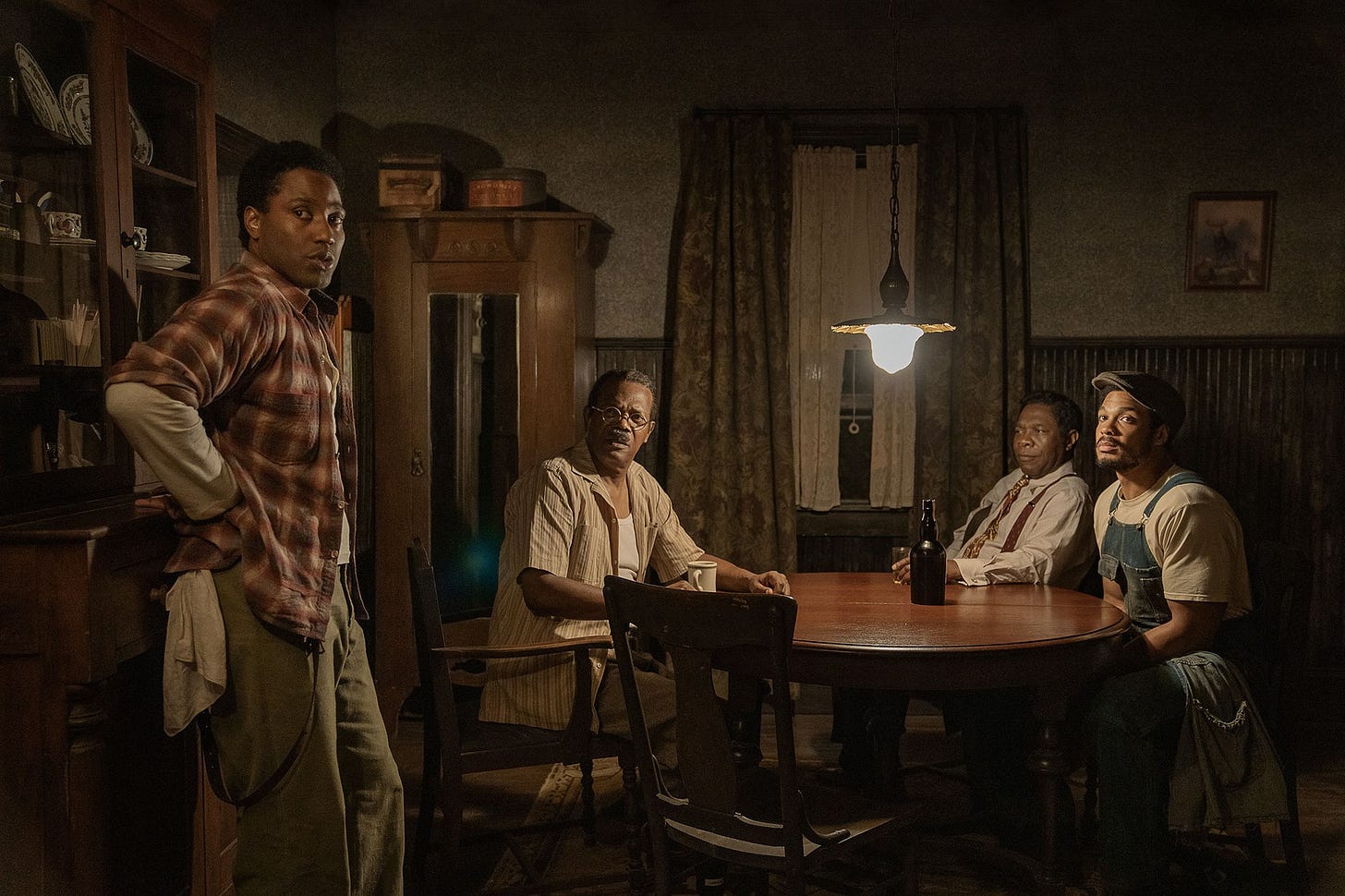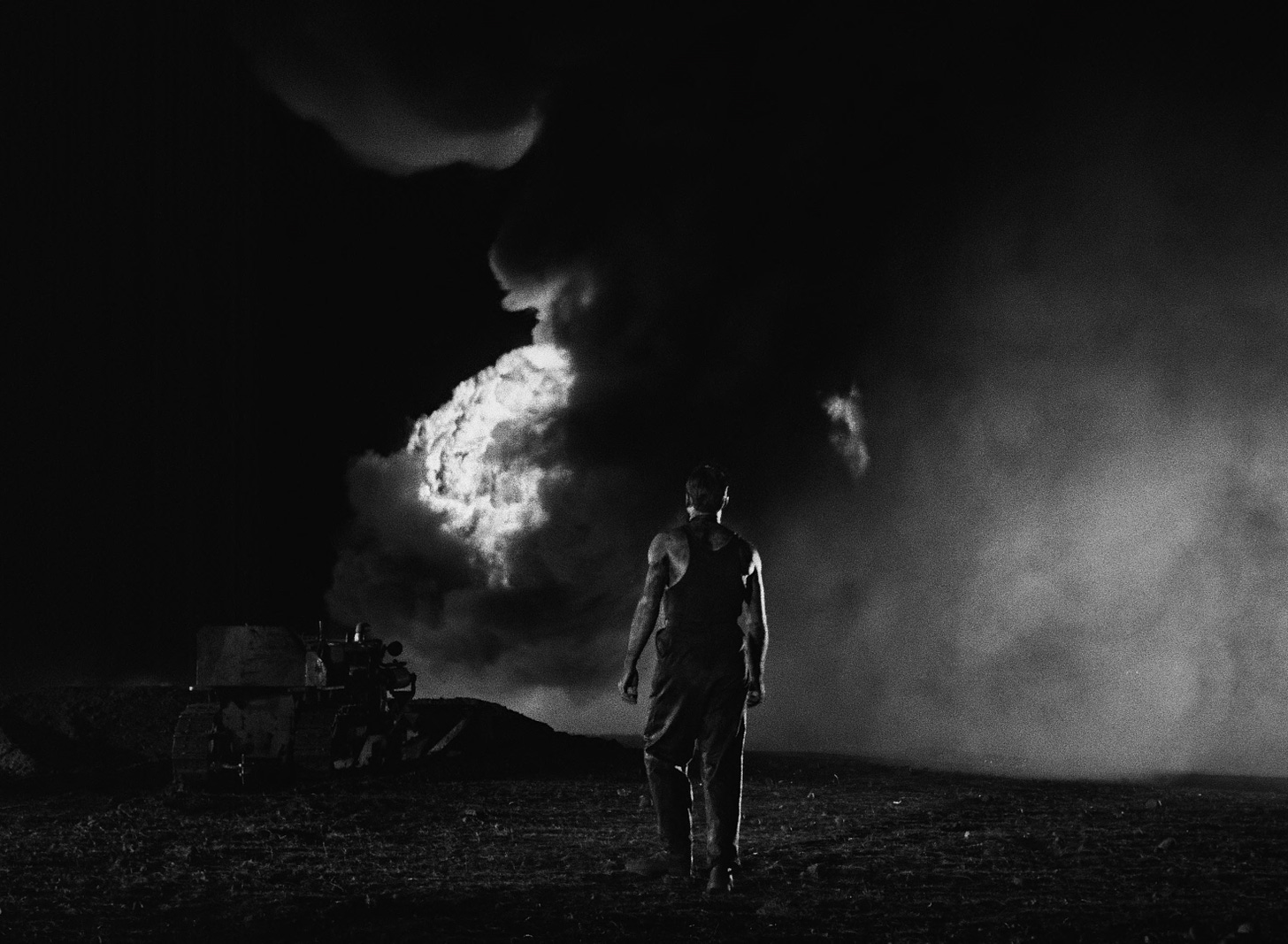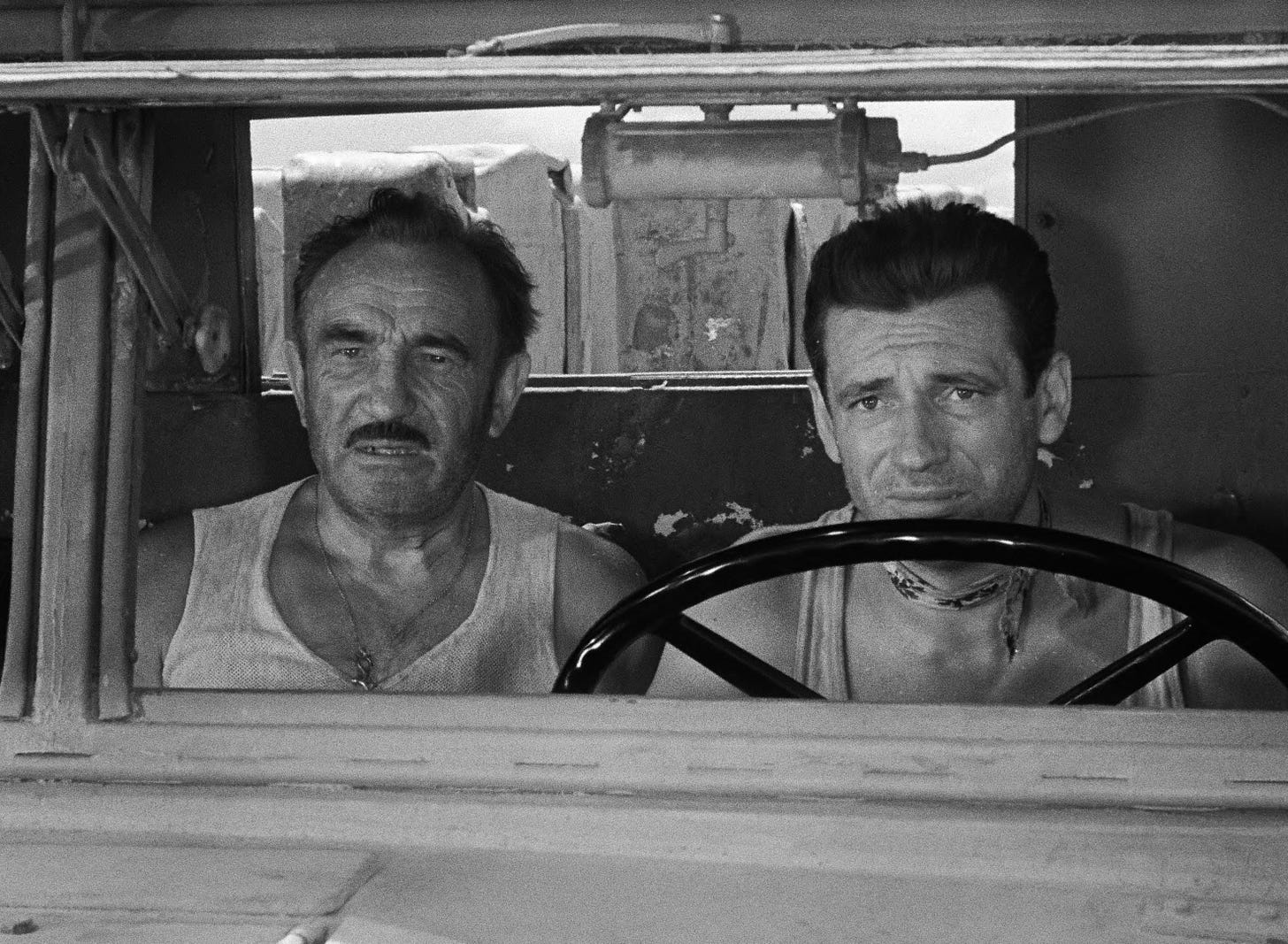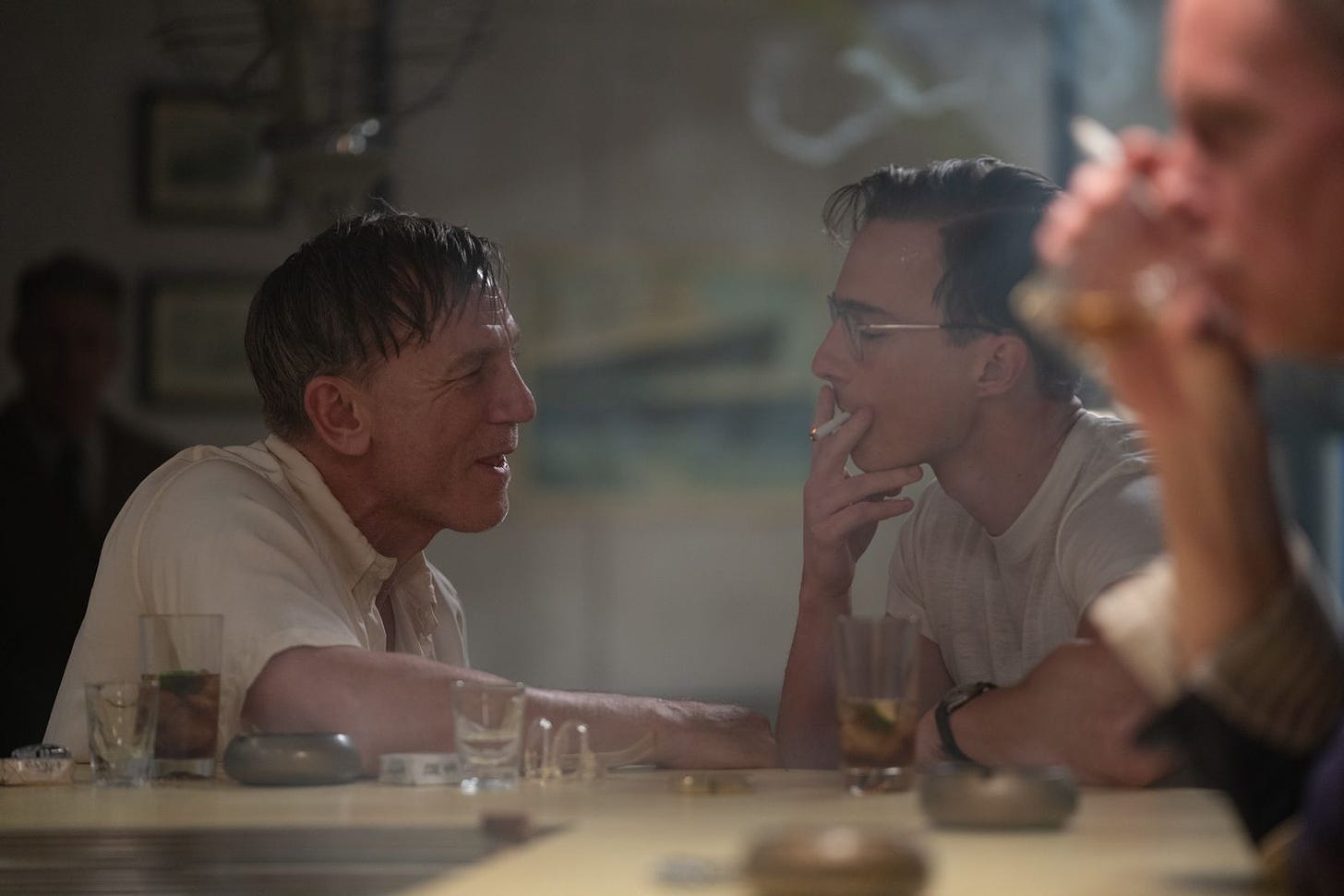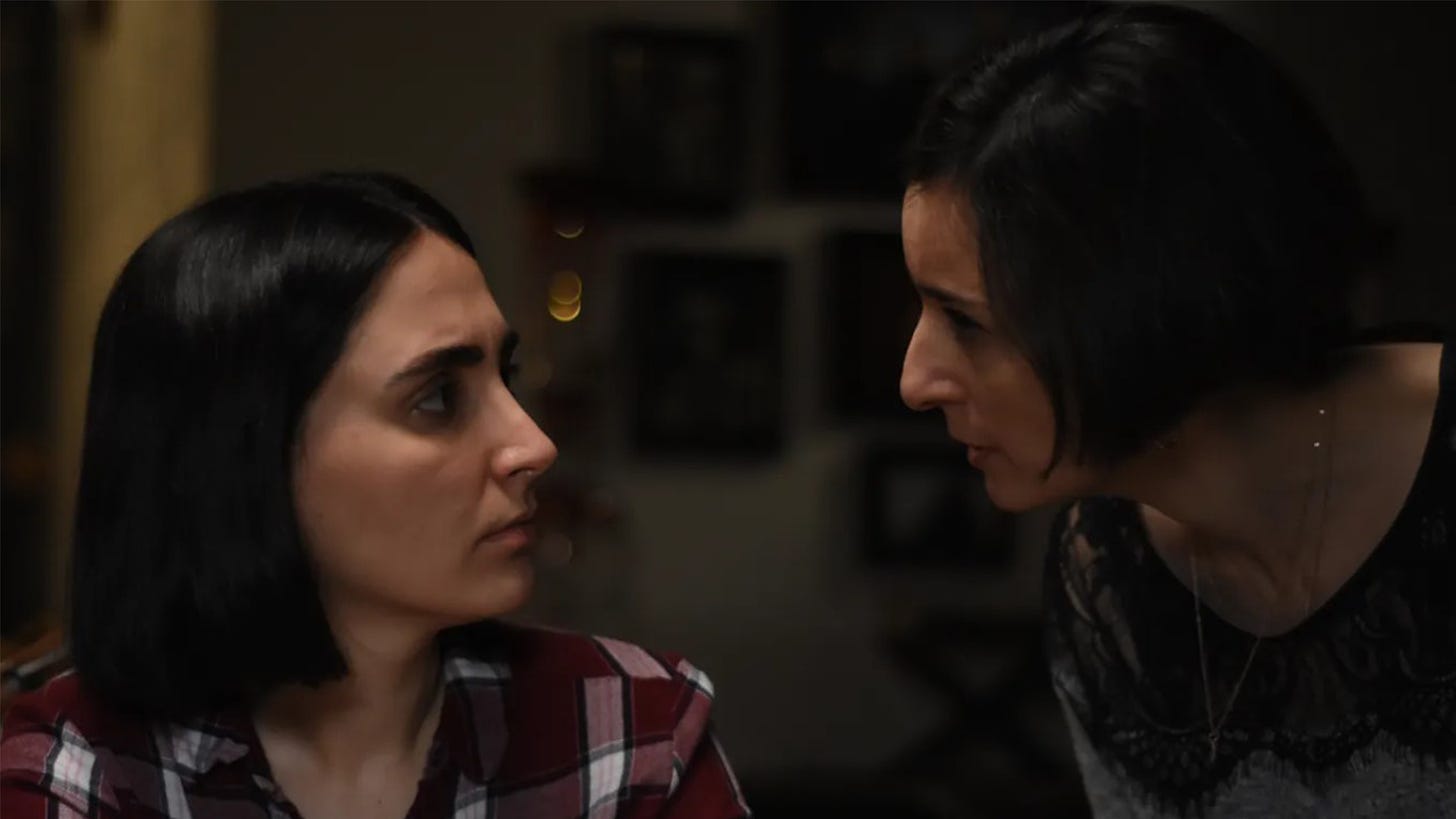Ruffling Feathers With My Movie Opinions
Potentially hot takes on Gladiator II, Wicked, The Piano Lesson, and more.
Happy Thanksgiving from Boston, where I’m spending the holiday with one of my cousins. {edit: I’ve been asked to clarify that one of my cousins lives in Boston with his wife, and so I am at their house. Four other family members/partners are also here!} I’m sneaking out these little movie takes on a day where most readers are presumably busy spending time with their family or friends, but I know from experience that there can be a lot of downtime spent scrolling on your phone, so hopefully this serves as a useful distraction. I hope you’re enjoying the time with your loved ones (or successfully avoiding them, depending on your situation).
There are a zillion choices if you want to see a new movie this weekend. This post is gonna make me sound like such a crank, because I did not find most of them compelling! While there is a lot I am thankful for this year, mediocre movies are not one of them. (While I did not see Moana 2 yet, it’s been almost universally panned.)
These are less full reviews, more of just me riffing.
Gladiator II
In theaters everywhere.
I was not entertained. Uninspired in conception and execution, not even a charming Denzel Washington can save Glad2ator. Retreading the original Gladiator without any of the predecessor’s craft or charm, the script is an exercise in constantly making the least interesting choice possible, especially with the characters returning from the first movie. (The navy coliseum battle was sick, though.)
Ridley Scott has been phoning it in over the past decade, but it’s even more obvious with this film, perhaps because we’re all comparing it to the first one. This film’s cinematographer, John Mathieson, straight up called his director’s methods “really lazy.” Scott’s successful late-career films (The Last Duel, The Martian, All the Money In The World) are based purely on the strength of its scripts and/or its cast. (Those three movies I’ve cited star Matt Damon or Mark Wahlberg, who are famously from Boston. Perhaps that is the secret?) Paul Mescal is a very good actor in intimate indies, but like his Normal People co-star, he doesn't have the movie star charisma necessary to carry a blockbuster like this. (Russell Crowe is sorely missed.) That said, better casting would not have saved this movie.
⭑⭑☆☆☆
Wicked: Part One
Inescapably in theaters.
For context: I love musicals. I love movie musicals. I have never seen Wicked on stage. (I’ll win the lottery any day now…) The most I really knew about the show was from my friends singing “Defying Gravity” at karaoke.
Perhaps that song — which closes the musical’s first act, and ends this film — is a good way to explain why I was so repulsed by Wicked: Part One, a lifeless musical adaptation that is an offense to the entire genre. Despite my lack of knowledge about the show, I consider “Defying Gravity” to be one of the greatest Broadway tunes ever written. It tells a story of its own while furthering the larger plot, and the melody soars as high as Elphaba does when she takes flight. Director Jon M. Chu really held space for this number, because he stretched it out — stopping and starting the music to squeeze in CG-driven action-fantasy nonsense — to the point where the song loses all musical and narrative momentum.
This denouement left such a sour taste because it accentuated all of the flaws in this director’s filmmaking style. Both Crazy Rich Asians and In the Heights are good movies, but they succeeded in spite of Chu’s direction. Although he may have the technical expertise to manage these massive productions, he lacks creative vision. The makeup and sets in Wicked are phenomenal, and the cast is giving it their all. But watching this film was absolute — to borrow a song title from a different bad adaptation of a great musical — agony.
My issues with this film do not lie with the source material. Wicked is essentially a People's History of Oz, with Elphaba and the animal citizens’ oppression paralleled with the Nazi persecution of the Jews, forcing the viewer to question predominant narratives of the demonized other. There’s some great musical numbers sprinkled throughout, but it’s pretty dark stuff!
I just do not vibe with Chu’s approach to shooting the musical numbers. The songs are brilliantly performed by the cast (Ariana Grande especially does some amazing vocal acrobatics), but the director clutters his shots with dozens upon dozens of background dancers. The choreography is presented in such a chaotic fashion, cutting across different locations, and disrupting the rhythm. (We can’t all be Bob Fosse.) Everything devolves into a blurry mass of movement. The foley sound effects — shirts rustling, shoes tapping, wind howling — are oddly loud and super distracting. (This is especially egregious during "Defying Gravity," when you can barely hear Cynthia Erivo's vocal riffs over all the sound effects.) It's an effort to add dynamism to these sequences, but I only felt sensory overload. And it doesn't help that everything has that desaturated sludgy color grade and backlit lighting that plagues most contemporary cinematography.
There are some bright spots. “Dancing Through Life” is the film’s most inspired musical sequence, with Jonathan Bailey leading a formidable troupe of dancers who jump around on a rotating clock/bookshelf thing. The video breakdown from the creative team is super cool. And the silent dance between Ariana Grande and Cynthia Erivo is beautiful and intimate when the rest of the film goes big and loud.
As heterodox as they are, these are my honest thoughts on Wicked: Part One. I just do not rock with this movie, while nearly everyone else is making plans to see it a second time. IndieWire critic David Ehrlich also detests the movie, which is rather dubious company to be in. (Not that Mr. Ehrlich is an unpleasant fellow; but if only one major film critic shares your opinion, something is going on.) There are glimmers of something good beneath all of the bluster. I want to see Wicked on Broadway, which I suspect I'll like a lot because the songs and story are terrific. So while I'm baffled by the strong reception that this film has gotten, I'm mostly sad that this is going to be the canonical movie version, and that audiences are settling for mediocrity when Hollywood has an otherwise rich tradition of good movie musicals. Despite all of the talent involved, you can't defy the gravity of hack direction.
⭑☆☆☆☆
The Piano Lesson
Streaming on Netflix.
Considered one of August Wilson’s finest plays, this adaptation boasts much of the cast from the recent Broadway revival: Samuel L. Jackson, John David Washington, Ray Fisher, Michael Potts. Joining the ensemble are Danielle Deadwyler and Corey Hawkins, and each of the acting veterans get a chance to show off their acting abilities. (John David Washington isn’t quite a veteran, but his that-don’t-impress-me-much nonchalance works really well here.) Unfortunately, director Malcolm Washington (brother of John David, son of Denzel — the movie is a family affair) shows his inexperience helming his first feature film. He relies too much on intercutting close-ups; good blocking is nowhere to be found. Washington is really relying on the experience of his cast to make this work. Mostly, I just wished I had seen the Broadway production so that this movie wouldn’t be my only impression of Wilson’s Pulitzer-winning play. It does end with a Frank Ocean needle drop, I’ll give it that.
⭑⭑⭑☆☆
The Wages of Fear (1953)
New restoration currently playing at the Film Forum in NY; rolls out nationwide throughout December.
When new movies are disappointing, watch a classic instead. Plenty of ink has been spilled about Henri-Georges Clouzot’s white-knuckle thriller, which has long been canonized in the Criterion Collection. On the occasion of a new 4K restoration, made by TF1 and la Cinémathèque française, La salarie de peur returns to arthouse cinemas across the country.
The film begins in an unnamed South American village, which is dominated by an American oil firm. An explosion at the oil fields yields a massive fire, which can only be put out by blowing up a bunch of nitroglycerin (I don’t know the physics of how this works). The highly volatile chemicals have to be transported 500 kilometers to the site of the fire, across incredibly hazardous terrain. Because the company’s union crew refuses the dangerous job, the task falls on four down on their luck Europeans, scraping for pesos in a strange land.
I had seen the movie once before, projected from a 35mm print; I dare say this gorgeous new restoration is a better experience. It takes nearly an hour before the ragtag crew sets out on the road; a lot of time is spent contextualizing the desperation of these expats. The post-war timing gives the action a political dimension; two Italians, a Dutchmen, and a Frenchmen are held to heel by an emergent American empire. Even in the 1950s, there were stories being told about neo-colonialism and resource extraction from the Global South. It just happens to be wrapped up in a tense movie about the worst road trip ever.
⭑⭑⭑⭑☆
Queer
Currently in limited release; wide release on December 13.
On the subject of Europeans working through a postwar malaise while marooned in a Latin American country, we have Luca Guadagnino’s latest picture.
Over the opening credits, we hear Sinéad O’Connor sing a cover of Nirvana’s “All Apologies.” “What else should I say? Everyone is gay,” could be an appropriate thesis statement for Luca Guadagnino’s period drama, an adaptation of William S. Burroughs' novel Queer. The next anachronistic needle drop, during which Daniel Craig’s wandering expat first lays eyes on the man who will emotionally ruin his life, is “Come as You Are.” Is this a stealth Nirvana jukebox movie? I wondered, but there’s only one other track from the band on the soundtrack.
Longer review, from New York Film Festival coverage, over here.
⭑⭑☆☆☆
The Seed of the Sacred Fig
Currently in limited release.
Beginning its theatrical rollout this weekend is The Seed of the Sacred Fig. The story about its making is more compelling than the result, but still a very good film!
Shot clandestinely in Iran by director Mohammad Rasoulof, who recently fled his country to escape persecution. He presents us with a story about a family whose tight-knit bonds become frayed when women’s rights protests are violently suppressed by the government. Iman, the family’s patriarch, is a longtime civil servant who is promoted to the role of investigator in Iran’s hardline Revolutionary Court, which oversees criminal cases of those accused of subverting the government. At first, Iman seems to be the film’s protagonist, but focus quickly shifts to his more liberal daughters, Rezvan and Sana, and their mother Najmeh, who stands by her husband while being pressured by her children to be more independent.
Slightly longer review, previously published, over here.
⭑⭑⭑½☆


